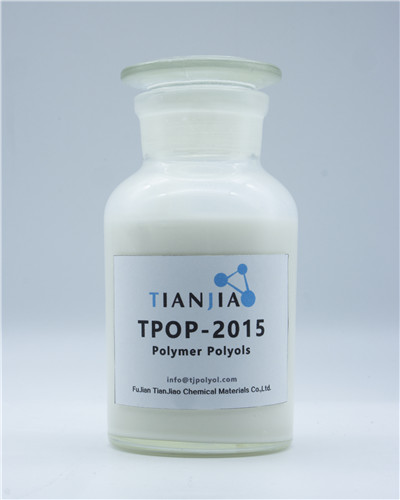TPOP-2015 POLYOL 15%
Specifications
|
Apperance |
Milky white viscous liquid |
GB/T 31062-2014 |
|
Hydroxy Value (mgKOH/g) |
45~49 |
GB/T 12008.3-2009 |
|
Water Conten (%) |
≤0.05 |
GB/T 22313-2008/ |
|
pH |
6~9 |
GB/T 12008.2-2010 |
|
Viscosity (mPa·s/25℃) |
700~1000 |
GB/T 12008.7-2010 |
|
Residue of Styrene (mgKOH/g) |
≤5 |
GB/T31062-2014 |
|
Solid Content (%) |
13~16 |
GB/T31062-2014 |
Packing
It is packaged in paint baking steel barrel with 210kg per barrel. If necessary, liquid bags, ton barrels, tank containers or tank cars can be used for packaging and transportation.
Storage
The product shall be sealed in containers of steel, aluminum, PE or PP, It is recommended to fill the container with nitrogen. When TPOP-2015 is stored, Avoid humid environment, And the storage temperature should be kept below 50°C, Should try to avoid sun exposure, away from water sources, heat sources. Storage temperature above 60°C will lead to product quality degradation. Short time heating or cooling has little effect on product quality. Be careful, The viscosity of the product will increase obviously at lower temperature, This situation will bring some difficulties to the production process.
Quality guarantee period
Under the correct storage conditions, The shelf life of TPOP-2015 was one year.
Security information
Most polymer polyol will not cause significant harm when used with certain preventive measures. When spraying or spraying liquid, suspended particles or steam, which may contact the eyes, Workers must wear eye protection or face protection to achieve the purpose of eye protection. Do not wear contact lenses. The workplace should be equipped with eyewash and shower facilities. It is generally believed that the product is not harmful to the skin. Work in a place that may come into contact with the product, Please pay attention to personal hygiene, before eating smoking and leaving work, wash the skin in contact with the product with washing products.
Leakage treatment
The disposal personnel shall wear protective equipment, Use sand, Soil or any suitable absorbent material will absorb the spilled material, It is then transferred to the container for processing, Wash the overflow area with water or detergent. Prevent material from entering sewers or public waters. Evacuation of non staff, Do a good job in area isolation and prohibit non staff from entering the site. All collected leaking materials shall be treated according to relevant regulations of local environmental protection department.
Disclaimers
The information and technical recommendations provided above are well prepared, But will not make any commitment here. If you need to use our products, We suggest a series of tests. The products processed or produced according to the technical information provided by us are not under our control, Therefore, these responsibilities are borne by users.







